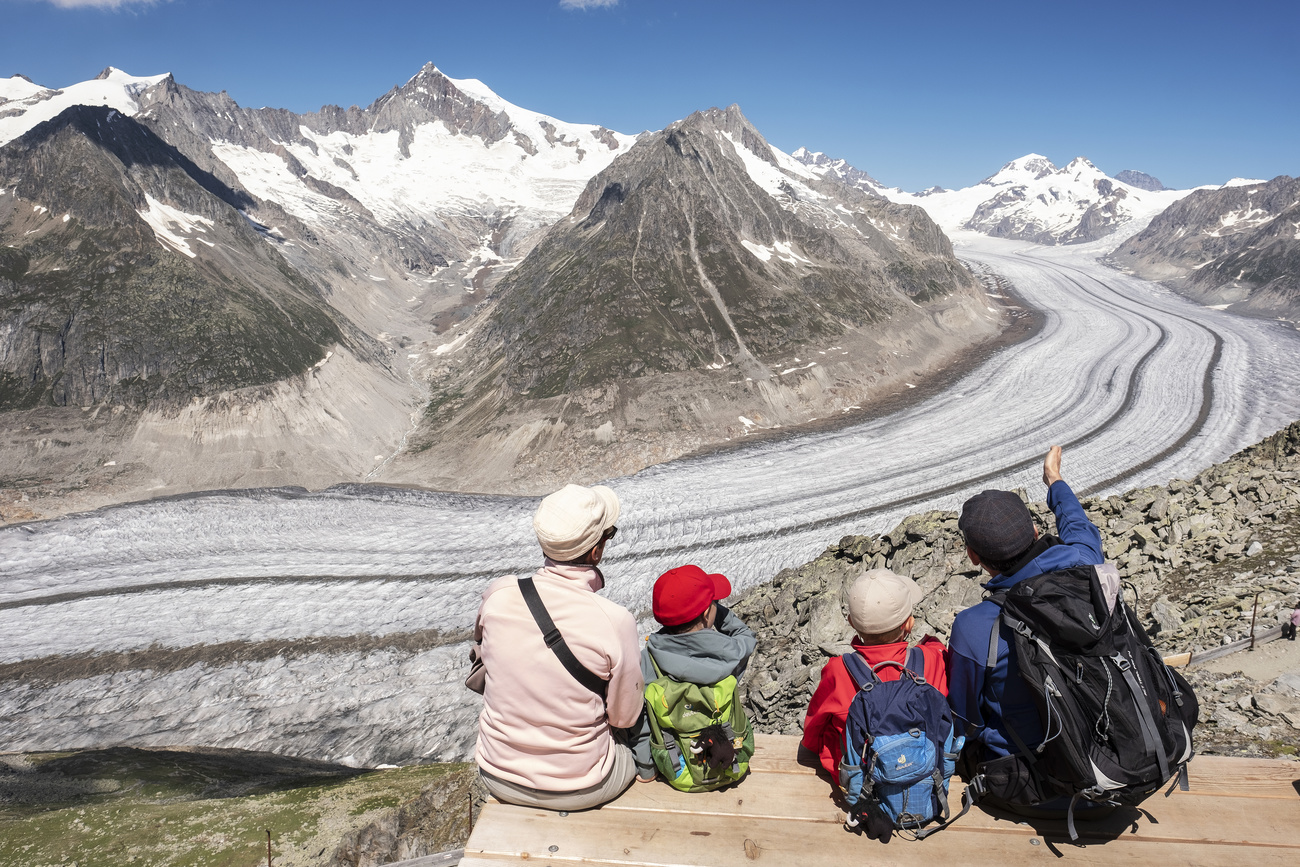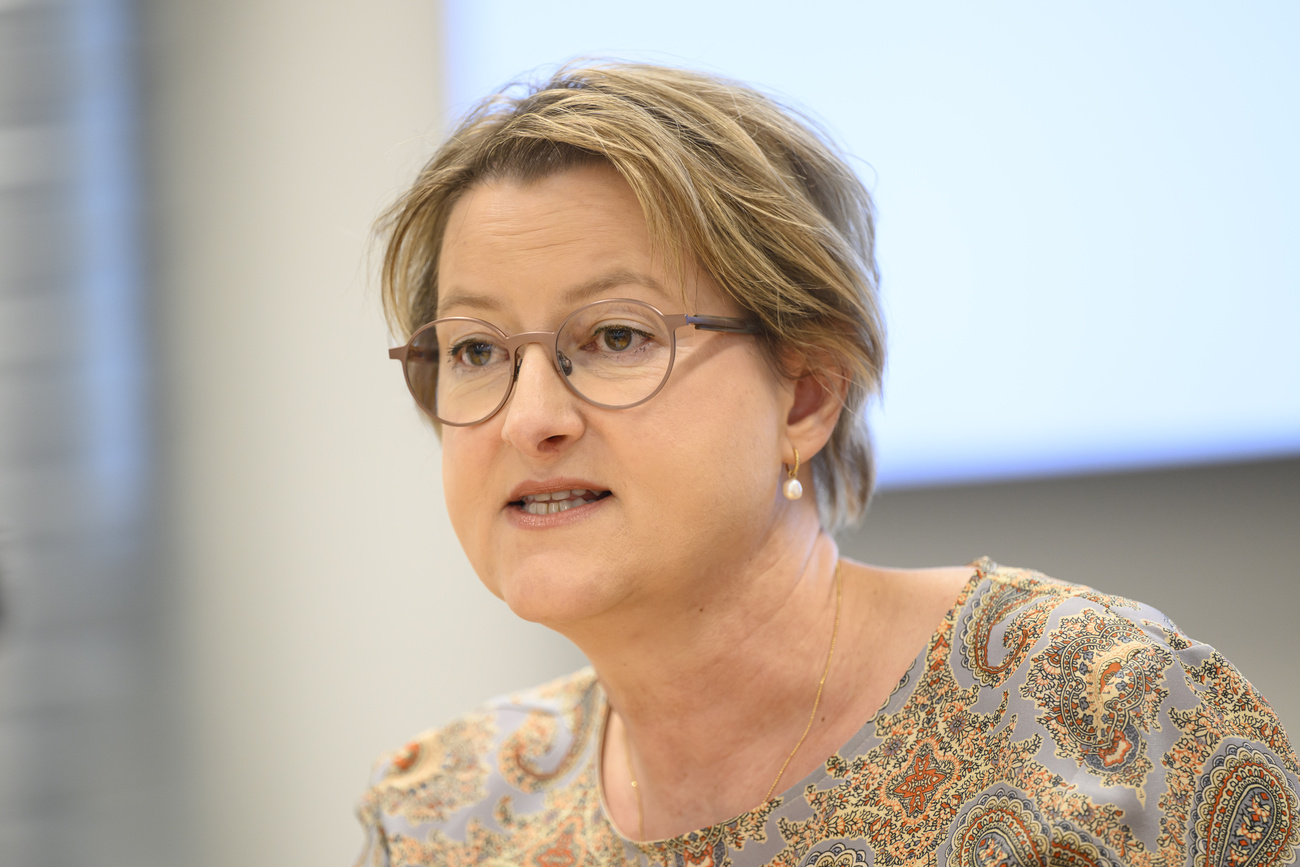
Dramatic loss of Swiss glaciers continues

The volume of Swiss glaciers continued to decline significantly this summer, drastically changing the image of the Alps. At low altitudes, last winter saw less snow than ever before.
In the past decade glacier melt has been strongest since observations began, the Cryospheric Commission of the Swiss Academy of Sciences reported on Friday. This loss will continue in 2020 but it will not be equally dramatic throughout the country.
At the beginning of May the snow on the glaciers corresponded to the average of the past ten years, the commission said.
“However, snow on glacier tongues became depleted early, and the melt reached very high values. In September 2020, the lowest depth of snow was measured on the Great Aletsch Glacier close to the Jungfraujoch since measurements began 100 years ago,” it said.

More
Dramatic photos show glacial retreat
The situation of most glaciers was not as serious as the period from 2017 to 2019. “Nevertheless, almost 2% of the total glacier volume has been lost throughout Switzerland over the past 12 months.”
Measurements of winter snowfall and melt on more than 20 glaciers in all parts of the country showed significant differences in losses.
While low-lying, flat glaciers recorded an average reduction of two metres in ice thickness, glaciers at high altitudes in the southern Valais as well as in Ticino and Engadine lost only about 50 centimetres in thickness. This is due to a lot of snow in early winter and snowfall in summer, according to the scientists.
Changing landscape
The commission said that since 1960 the amount of water lost by Swiss glaciers could have filled Lake Constance. This has significantly changed the landscape of the Alps.
“Glacier forelands are growing, and new mountain lakes are being created. Individual small glaciers had to be removed from the monitoring network due to their disintegration,” it explained.
“The retreat of the glacier also creates dangers, as impressively illustrated by the ice break-off at the Turtmann Glacier in Valais and the emptying of the glacial lake on Plaine Morte, canton Bern.”

In compliance with the JTI standards
More: SWI swissinfo.ch certified by the Journalism Trust Initiative






























You can find an overview of ongoing debates with our journalists here . Please join us!
If you want to start a conversation about a topic raised in this article or want to report factual errors, email us at english@swissinfo.ch.